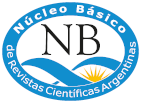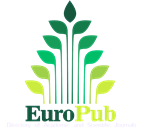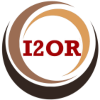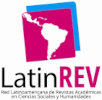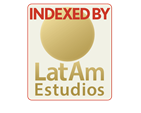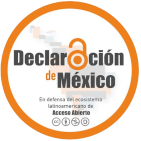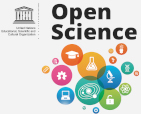Ethical code
Artilugio upholds good editorial practices and ethical policies that implement rigorous review processes to ensure the publication of quality material, discourage ethical misconduct, and anticipate the solutions to possible conflicts of interests between the parties involved in the editorial process (authors, reviewers, editors, etc.) For this reason, Artilugio adopts the Ethical Guidelines for Publication (Normas Éticas de Publicación) that EdFA (the Faculty of Arts’ publisher) has established for its journal and which are based upon national recommendations ("Lineamientos para el comportamiento ético en las Ciencias Sociales y Humanidades", CONICET, Resolution 2857 - December 11th, 2006) and international standards (Core Practices, Committee on Publications Ethics). This code must be fully acknowledged and widely respected by all the persons involved in this journal's editorial process.
- Functions and obligations of the persons involved in the editorial process
1.1 Director(s)
The director represents the journal, is legally responsible for it, and is in charge of allocating and managing the journal's resources. The director is committed to:
- representing the journal whenever necessary;
- coordinating the internal structure of the journal and ensuring it works properly;
- maintaining the academic quality of the journal and promoting an honest, thorough, ethically sound, and fair editorial process;
- recommending and coordinating editorial policies and approaches that are in line with the policies outlined by EdFA;
- using every possible means to enhance the quality of the journal and help it stand out among other journals that belong to the same scientific discipline;
- together with EdFA, proposing improvements or modifications in the structure, functioning, technical team, Consultative Academic Committee, or Editorial Board in order to enhance the quality of the journal and the editorial process;
- mediating in any conflicts that might arise between the journal and the authors, the reviewers, the editors, the readers, or the academic community;
- meeting and helping others to meet the guidelines and norms expressed in this Code of Ethics and Best Practices and the legal requirements related to copyright and plagiarism, as well as notifying the Committee of Good Conduct whenever a conflict arises;
- refraining from participating as author(s) or reviewer(s) in the journal in order to provide as much impartiality and transparency as possible during the editorial process.
1.2 Editors
Editors are in charge of leading the editorial process of evaluation, approval, and publication, always ensuring that published works follow all the formal requirements and guidelines.They are ultimately responsible for deciding whether a submission is accepted or rejected. Editors are committed to:
- coordinating the journal’s editorial process and ensuring it functions properly;
- proposing new editorial policies, as well as reviewing and discussing about the existing editorial policies with the Editorial Board and EdFA;
- ensuring the editorial process meets academic and ethical standards and that discrimination based on the author(s)’ gender identity, sexual orientation, religion, ethnicity, place of origin, academic or professional qualifications, political or cultural beliefs, etc., has no place in the decisions taken by the Editorial Team and the external reviewers;
- together with the Editorial Board, maintaining the academic quality of the journal by selecting people with the necessary expertise and academic and professional qualifications to review the submissions and reach at conscious and sensible decisions;
- together with the Editorial Board, proposing central themes for each issue of this journal that are consistent with the themes proposed by other journals that belong to EdFA;
- ensuring confidentiality is maintained during the editorial process by guaranteeing that no data, theories, or any other type of information included in the works under review are used or disclosed before publication;
- ensuring effective communication with the author(s) in all the stages of the editorial process and informing about the final verdict and about any conflict that might arise during the editorial process;
- avoiding any type of conflict of interest that might arise and impede impartiality (collaboration, rivalry, or any sort of relationship with the authors, the institutions the authors are affiliated with, or the institutions that have made financial contributions to the work under evaluation);
- preserving the anonymity of the author(s) and reviewers during the blind review processes and ensuring confidentiality between the parties is maintained until publication;
- avoiding to publish submissions that have not been accepted for publication during the peer review process;
- avoiding to exercise influence over the author(s) as regards the use of bibliographical references that might be of interest to the journal in order to enhance its impact factor;
- informing the Editorial Board of any error or inaccuracy detected in published papers in order to correct them and, if necessary, notifying the author(s) about any corrections, explanation, or apologies;
- contributing to the dissemination of the works herein published and the indexing of this journal in local and international databases with the aim of enhancing the circulation and prestige of the journal’s publications, authors, Editorial Team, and publisher;
- refraining from participating as author(s) or reviewer(s) in the journal in order to provide as much impartiality and transparency as possible during the editorial process.
1.3 Editorial Board
The Editorial Board is composed of experienced researchers that facilitate the organizational and academic functioning of the journal, as well as its policies. The board is responsible for formulating and ensuring the implementation of the editorial policies and approaches. The members of the Editorial Board are committed to:
- ensuring the journal operates a transparent, thorough, unbiased, and fair editorial process;
- maintaining the academic quality of the journal, as well as reviewing and making corrections to the proposals made by the editors on the contents and policies of the journal;
- bearing academic requirements in mind (relevance, feasibility, originality, quality, and contribution) before accepting or rejecting submissions;
- treating all authors equally and fairly regardless of their gender, sexual orientation, religion, ethnicity, place of origin, academic or professional qualifications, political or cultural beliefs, etc.;
- recommending external reviewers (or asking the Consultative Academic Committee for advice) for the evaluation of the accepted submissions, guaranteeing that these reviewers are suitably qualified, and ensuring the evaluation process takes place in the shortest time possible;
- deciding whether a third committee is necessary or not in case of a disparity of opinions during the review process;
- avoiding the publication of works where any type of plagiarism or fraud have been detected (see Plagiarism Policy);
- meeting and ensuring others meet the standards and procedures expressed in this Code of Ethics and Best Practices, as well as notifying the Committee of Good Conduct whenever a conflict arises;
- announcing Calls for papers and the publication of new issues and encouraging people to read and download published papers in all the possible mediums and channels of communication with the purpose of disseminating the journal’s contents at a local, national, and international level;
- refraining from participating as author(s) or reviewer(s) in the journal in order to provide as much impartiality and transparency as possible during the editorial process.
1.4 Consultative Academic Committee
The Consultative Academic Committee is composed of local and international external professionals, academicians, researchers, and specialists who are leading figures in different fields of research and in the specific subjects covered by each issue of this journal. The Consultative Academic Committee is an advisory body responsible for permanently evaluating the contents published in the journal and acting as a consultant for the Editorial Board whenever the board updates or enhances the policies or approaches adopted by the journal. The members of the Consultative Academic Committee are committed to:
- working in a personal capacity and for free;
- whenever the Editorial Board requires it, recommending experts in different fields for the evaluation of submissions or for their participation in the section “Dossier”;
- collaborating and giving advice in the formulation of the central theme the journal proposes for each issue;
- providing new external perspectives that encourage and awaken curiosity for current issues beyond local and national ones;
- composing the d hoc Committee of Good Conduct on a rotating basis in order to help achieve the standards and procedures expressed in this Code of Ethics and Best Practices;
- refraining from participating as authors in the journal’s call for papers (nevertheless, the Editorial Board might invite the members of the Consultative Academic Committee to participate in the section “Dossier”).
1.5 Authors
Authors are all those people who participate in the journal by submitting academic or artistic productions. When an author submits a work to Artilugio, they are committed to:
- reading and accepting the journal’s Code of Ethics, Plagiarism Policy, Copyright Policy, and Author Guidelines (including its corresponding submission guidelines and requirements) before they send their submissions;
- submitting original and unpublished works of their own authorship that have not been previously published or that are not under evaluation in other journals;
- waiting for the reviewers’ final verdict before submitting their work to another journal (this can only take place if the verdict is negative and Artilugio has rejected the submission);
- providing their personal information to the journal for its use during the evaluation process and, in the case of a positive verdict, before the publication of their article;
- ensuring that the coauthor(s) have read and approved the submission, that an Authorship Declaration is sent, that the rights for publication have been granted to the journal, and that they own the licenses to reproduce the images included in their work;
- acknowledging as coauthor(s) all those people who have significantly contributed to the work in any of its parts (theoretical framework, state of the art, data analysis, interpretation of results, or the writing process);
- not acknowledging as coauthor(s) all those people who have not actively or significantly contributed to the work (if necessary, minor participants should be acknowledged as collaborators on a footnote);
- properly identifying and mentioning the sources, data, information, and resources used during the research and writing process in compliance with the journal’s citation policies (see Author Guidelines)
- avoiding any type of plagiarism, self-plagiarism; duplicate, multiple, or redundant publications; citation manipulation, data falsification and fabrication, and conflict of interests (see Plagiarism Policy);
- taking responsibility for the ideas, theories, opinions, or statements formulated in their work and declaring that their work has been undertaken in an ethically sound and sensible way, that all the corresponding regulations have been met, and that the journal is exempt from any responsibility;
- ensuring they own the licenses necessary to reproduce the figures, tables, photographs, images, artworks, videos, sound recordings, and other documentary sources included in their work that require previous authorization in order not to infringe copyright and accepting that, in this way, the journal is exempt from any issue derived from an infringement of copyright;
- actively engaging in the peer review process by making all the necessary corrections required by the reviewers or by the journal’s Editorial Board in due course;
- notifying the journal’s editors if they spot a significant error (numerical, conceptual, or grammatical) in the published work and collaborating in solving or retracting the error;
- signing the statement by which they transfer first-publication rights to the journal only for academic and non-profit purposes;
- accepting their work is published in compliance with Creative Commons Attribution-NonCommercial-ShareAlike 4.0 International (CC BY-NC-SA 4.0), a license that allows third parties to use their work as long as appropriate credit is given, authorship and Artilugio’s first-publication rights are mentioned, the use is for non-profit purposes, and derivative works (such as translations) are distributed under the same license (see Copyright notice).
1.6 Reviewers
Reviewers are experts external to the journal that compose an ad hoc committee and peer-review manuscripts. When an editor sends a submission to a reviewer, the reviewer is committed to:
- meeting the guidelines outlined in the journal’s Evaluation Policies and Recommendations for Reviewers and in the Evaluation Form and respecting the deadlines established by the Editorial Board;
- peer-reviewing manuscripts on a voluntary basis and ensuring they are suitable to assess works that are related to their specialty and qualifications;
- notifying the editors of any conflict of interest (collaboration, rivalry, or any sort of relationship with the authors, the institutions the authors are affiliated with, or the institutions that have made financial contributions to the work) that might impede an impartial evaluation;
- reviewing submissions in a critical, honest, and morally acceptable manner and ensuring the evaluation is presented in a respectful tone free of personal opinions and judgements and that it provides constructive criticism in order to help the author(s) improve their work;
- maintaining absolute confidentiality during the editorial process and, especially, in regard to the work under evaluation, as well as avoiding to make use of or disclose the data, theories, or any type of information included in the works that are being evaluated until they have been published (unless the Editorial Board requires it, it is also forbidden to show or discuss the work with other people);
- confidentially notifying the Editorial Board of any type of fraud or substantial similarity between the work they are evaluating and another publication (plagiarism or self-plagiarism) and refraining from discussing this situation with other people;
- reaching a final verdict (accepted, accepted with modifications, or rejected) using the Evaluation Form as a guide.
1.7 Editorial Technical Team
The Editorial Technical Team is composed of professionals who are responsible for organizing and supervising different technical aspects concerning the journal. They are in charge of working with editors in the development of each issue’s final version. The members of the Editorial Technical Team are committed to:
- arranging the journal’s layout and web design, proofreading the articles and website, and determining the journal’s output formats and online publication;
- handling the journal’s indexing in local and international databases that enhance the prestige ot the journal, the articles, the authors, the members of the Editorial Team, and the publisher;
- maintaining absolute confidentiality during the editorial process.
- Editorial misconduct and conflicts
2.1. Ad hoc Committee of Good Conduct
If any type of irregularity, ethical misconduct, or academic fraud is detected, an ad hoc Committee of Good Conduct composed of four members from the Consultative Academic Committee will be convened. This committee will mediate between the author(s) and reviewers if any disagreement arises. Authors, reviewers, or editors (i.e., the people participating in any part of the editorial process) can require the intervention of this committee, which can function for no more than 6 weeks. The decisions made by the ad hoc Committee of Good Conduct cannot be appealed.
The Committee of Good Conduct will meet this Code of Ethics and will follow the procedures indicated by COPE (Committee on Publication Ethics) for each case (see https://publicationethics.org/resources/flowcharts-new/translations) with the aim to shed light on the situation and settle the conflict or irregularity.



